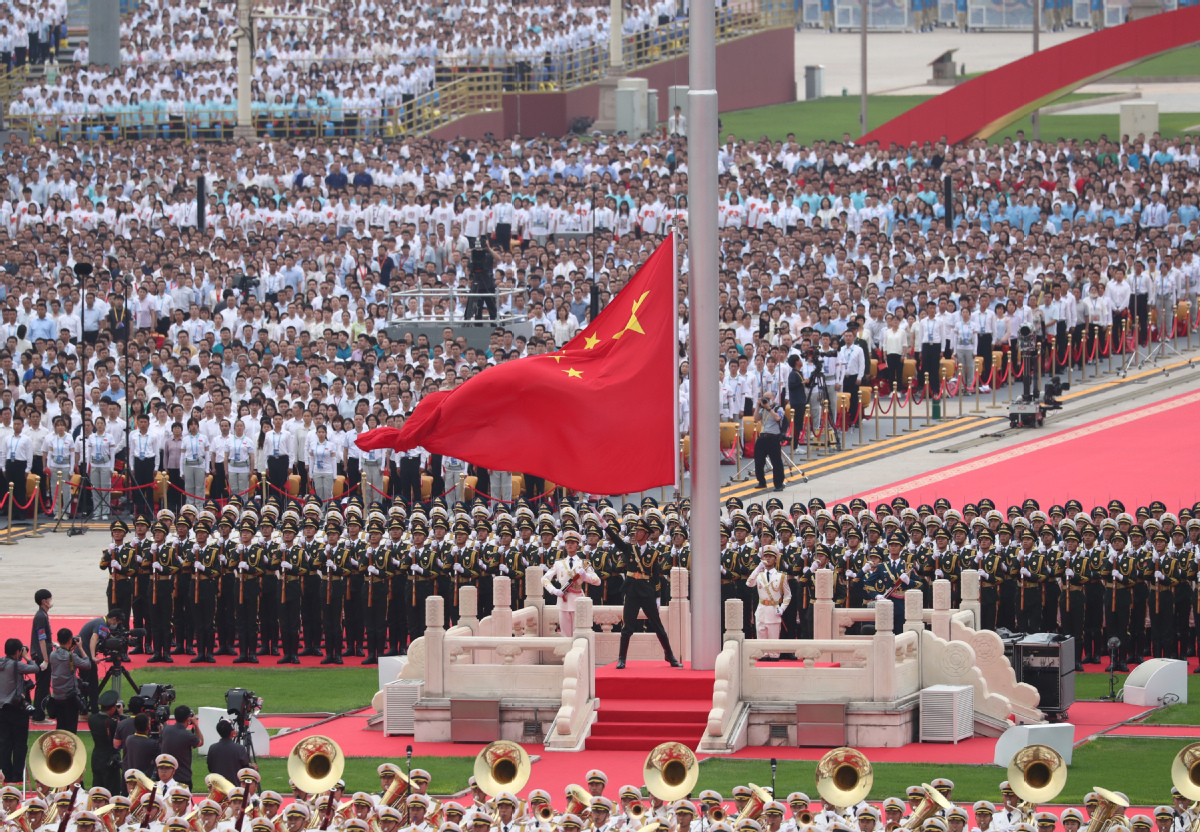Party builds on 100 years of achievements


Adolphi, the German political scientist, said Western leaders unfortunately have a problem with accepting China's rise.
"Obviously, they are unwilling to understand that the growing role that China plays is not damaging to the world, but is the renaissance of normality," he said. "Instead of taking this development as a chance for a new type of cooperation and a common approach to the world's problems, they perceive it as a new Cold War, a new conflict of systems and a revival of old enemy images."
The latest example of this is Washington handpicking some countries and regions to take part in its so-called Summit for Democracy on Dec 9-10 with a view to rallying "democracies" against what it considers to be "authoritarian "states.
Analysts said the meeting was a fresh attempt by the US to provoke divisions and ideological confrontation worldwide. Washington aims to reassert its hegemony as the so-called leader of the free world in order to reinforce its efforts to deploy a new anti-China strategy by labeling the CPC as "authoritarian", they said.
Carlos Martinez, co-founder of the No Cold War campaign and an author and activist based in London, said Washington wants to further establish a coalition of the US' traditional allies. "An obvious example of this is the announcement of this AUKUS (Australia, United Kingdom, US) pact in September. It's very clearly part of a broader strategy of China containment," he said.
Martinez added that the limitations of the Western democratic model are increasingly plain to see. "Under this model, people have the right to vote for one or the other party, but they never really see substantive improvements in their conditions. They can vote for a personality, a party, a brand, but they can't vote for the type of economic and political change that they really need," he said.
In contrast, the CPC has developed whole-process people's democracy, a socialist democracy model that covers all aspects of the democratic process-including elections, decision-making, management and oversight-and all sectors of society.
This month, the State Council Information Office released a white paper clarifying how democracy works in China. The document states that whether a country is democratic or not should be judged by its people, not dictated by a handful of outsiders. Assessing the world's myriad political systems against a single yardstick, and examining diverse political structures in monochrome, are in themselves undemocratic, it adds.
In a video speech delivered to the opening of the Imperial Springs International Forum on Dec 5, Xi reiterated that the CPC would unswervingly follow the path of peaceful development and opening-up to the world, work for a community with a shared future for mankind, and promote humanity's common values of peace, development, fairness, justice, democracy and freedom.
Ali Sarwar Naqvi, executive director of the Center for International Strategic Studies in Islamabad, Pakistan, said the past 100 years in China have seen "a marvelous history full of dedication, sincerity and hardworking selflessness with vision by a single party-the Communist Party of China."
He told Xinhua News Agency, "A rising China is not only benefiting its own people but also the people beyond its borders."
Brown, the Xiamen University professor, said that with the Belt and Road Initiative, China is simply applying its pragmatic "roads first, then riches" method in other nations-especially those in Africa.
"My youngest son, who lives with his wife and children in Africa and does volunteer medical and social work, says that in the remotest areas, he sees Chinese working alongside Africans to help build highways, railways, dams, bridges, ports and airports," he said.
Brown added that history proves that a strong China is not a threat to peace, but rather a force for it-and perhaps the only hope for the underdeveloped world that is still struggling in extreme poverty.


















